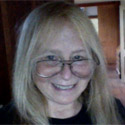Advisory Board and Editors Zoology

Brant C Faircloth
Associate Professor of Biological Sciences at Louisiana State University and Research Associate as the LSU Museum of Natural Sciences. Research interests include population and evolutionary genomics of non-model organisms; community genomics; genotype-phenotype interactions; (immuno-)genetic basis of mate choice; mating behavior; social behavior; and natural history.

David E.K. Ferrier
Reader in Biology and Director of the Scottish Oceans Institute, at the University of St Andrews.
The focus of our research is the connection between the content and organisation of genomes to the evolution of development (evo-devo). We utilize a variety of organisms in our research (including amphioxus, sea squirts, polychaetes and priapulids), chosen from key points in the phylogeny of the animals to enable reconstruction of the ancestral conditions at major nodes in the animal kingdom; the origin of bilaterians, protostomes, deuterostomes, chordates and vertebrates.

Alex T Ford
Alex completed an undergraduate degree in Biological Sciences (1996) at the University of Plymouth (England, UK) before embarking on a masters in Environmental Biology at Swansea University (Wales, 1997). After spending several years working as a marine benthic ecologist and taxonomist he undertook a PhD in Invertebrate Physiology and Ecotoxicology at Napier University Edinburgh (Scotland, 2001-2004). Between 2004 and 2008 he continued to be based in Scotland working as a Lecturer in Marine Biology and Ecotoxicology before moving south to the University of Portsmouth (England) where he is now a Professor of Biology. His expertise lies mainly in invertebrate biology, ecology and ecotoxicology.
He is currently course leader for an MSc entitled Applied Aquatic Biology and unit leader for courses on: Ecotoxicology and Pollution; Science and the Media; Marine Ecophysiology and Marine & Terrestrial Ecology.

William Froneman
William Froneman, PhD is currently a professor of marine biology in the Department of Biological Sciences at the University of Cape Town, South Africa. His research focusses on the top-down and bottom-up control of plankton food webs, predator-prey interactions and the ecological impacts of microplastics on shallow water ecosystems. Since obtaining his PhD degree in 1996, he has published 209 peer reviewed science journal articles, 10 book chapters and has successfully supervised 47 MSc theses and PhD dissertations. In recognition of his research achievements, he has received several awards including the Junior and Senior Distinguished Research awards from Rhodes University, South Africa and the Meiring Naude Gold medal from the Royal Society of South Africa.

Dany Garant
Professor of Ecology in the Department of Biology at Université de Sherbrooke.
Research in my lab aims to understand the processes that generate and maintain biodiversity, mainly through the establishment of evolutionary related parameters in their ecological context. Current research projects in our laboratory involve molecular ecology, quantitative genetics and population dynamics to study wild animal populations.

Rosanna Giordano
Dr. Rosanna Giordano is Assistant Professor at Florida International University, Institute of Environment.
She received her undergraduate degree from Dowling College, her master’s degree from the University of Northern Iowa, and her doctoral degree in Entomology from the University of Illinois Urbana-Champaign.
Dr. Giordano's primary research interests are focused on the population structure and genomics of invasive agricultural insect species such as aphids and honey bees. How the microbiome affects insect’s metabolism and their ability to cope with control strategies such as resistant plant varieties and insecticides. As well the development of genomic tools to track invasive insect species and to use insects as bio monitors of environmental pollution.

Christopher J Glasby
Chris Glasby is a specialist in the systematics – taxonomy, phylogeny and biogeography – of Annelida, specifically polychaetes (marine bristle worms). He is emeritus Curator of Annelids at the Museum & Art Gallery of the Northern Territory, Darwin and an Honorary Research Associate of the Australian Museum, Sydney.

Stephanie S Godfrey
Lecturer in the Department of Zoology at the University of Otago, Dunedin, New Zealand.
Research interests include animal behaviour (and specifically animal social networks), host-parasite ecology, and conservation biology.

Stanislav N Gorb
Stanislav Gorb is professor of zoology at the University of Kiel. His research focuses on morphology, structure, biomechanics, physiology, and evolution of surface-related functional systems in animals, as well as the development of biologically inspired technological surfaces and systems. Gorb has authored four books, more than 200 papers in peer-reviewed journals, and four patents. His awards include Science Award of the Donors’ Association for the Promotion of Science and Humanities in Germany (Stifterverbandpreis für die Deutsche Wissenschaft), International Forum Design Gold Award and Materialica "Best of" Award. He is member of Academy of the Science and Literature Mainz, and of the National Academy of Sciences Leopoldina.

Patricia A. Gowaty
Distinguished Prof. of Ecology & Evolutionary Biology and Inst. of the Environment and Sustainability, UCLA; Research Assoc, Smithsonian Tropical Research Institute. Fellow of the AAAS, the Animal Behavior Society, the American Ornithologists' Union, the Soc.of Biology. Previous President of the Animal Behavior Society & Vice-President of the American Ornithologists Union. Awards include 3 NIH career awards, the Quest Award from the Animal Behavior Society & the Lamar Dodd Award.

Philippe Grandcolas
Head of the Institut de Systématique, Evolution, Biodiversité at the Muséum national d'Histoire naturelle of Paris (UMR 7205 CNRS, MNHN, UPMC, EPHE); Member of the Scientific Council, Muséum national d'Histoire naturelle; Past Scientific Secretary, National Comittee CNRS; Past President, Willi Hennig Society; Associate Editor of Cladistics, Bionomina

Simon C Griffith
I work on a number of evolutionary and ecological questions with a number of species of birds in both the field and laboratory. Captive model systems such as the Gouldian finch and zebra finch provide excellent opportunities to understand diversity in questions relating to speciation, sociality, sexual selection, and signalling. We are also interested in how Australia's extreme and highly stochastic climate influences behaviour and life history evolution.

